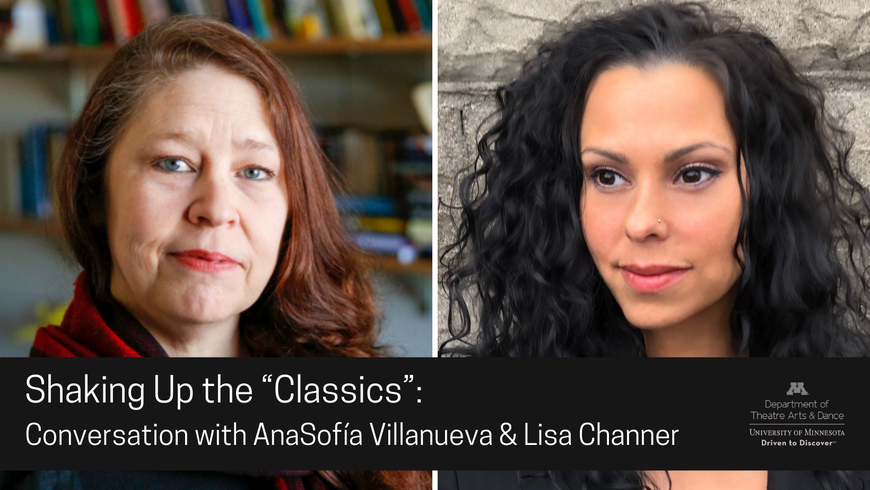Shaking Up The “Classics”: A Conversation with AnaSofía Villanueva and Lisa Channer
Shaking Up the “Classics”:
A Conversation with AnaSofía Villanueva and Lisa Channer
Friday April 23rd, 5:45-6:45pm CST
Click here to join the Zoom Meeting
How can we responsibly interface with “enduring texts”? How can we expand our approach so that young artists do not feel compromised? How can we redefine what “classical” is in a way that does not conform to oppressive ideologies, such as white supremacy and patriarchy?
Join AnaSofía Villanueva (director of The Heresy of Love) and Lisa Channer (director of Hecuba) for a conversation about approaches, processes, and philosophies underpinning adaptations of Greek, Spanish Golden Age, or other “classics” now. Villanueva and Channer will discuss their respective projects and the importance of refining what “classical” means now. The talk will touch on what “classical” means to BIPOC artists, how artists can refine these ideas so that they better serve and amplify voices historically marginalized on the American stage, and to ensure that future generations of theatre artists are not subjected to the trauma of erasure.
From the artists:
AnaSofía Villanueva on The Heresy of Love and feminist revivals of "classic" texts: "The Heresy of Love by Helen Edmondson offers a feminist revival of the story of Juana Inés de la Cruz during the time of Spanish colonial rule in the Americas. The play sparked critical conversation with the students and director by responding to the following questions: Who wrote the story? Who benefits from the story? Who is missing from the story?"
Lisa Channer on the subversive and radical potential of adapting Greek or other “classics”: Carr's Hecuba adaptation finds a way to critique and reverse a central plot point of the original toward feminist and anti war ends. She radicalized the already radical original of Euripides by cutting off entirely the personal blame and instead indicting the culture in which the plot unfolds. Ours. Now.
